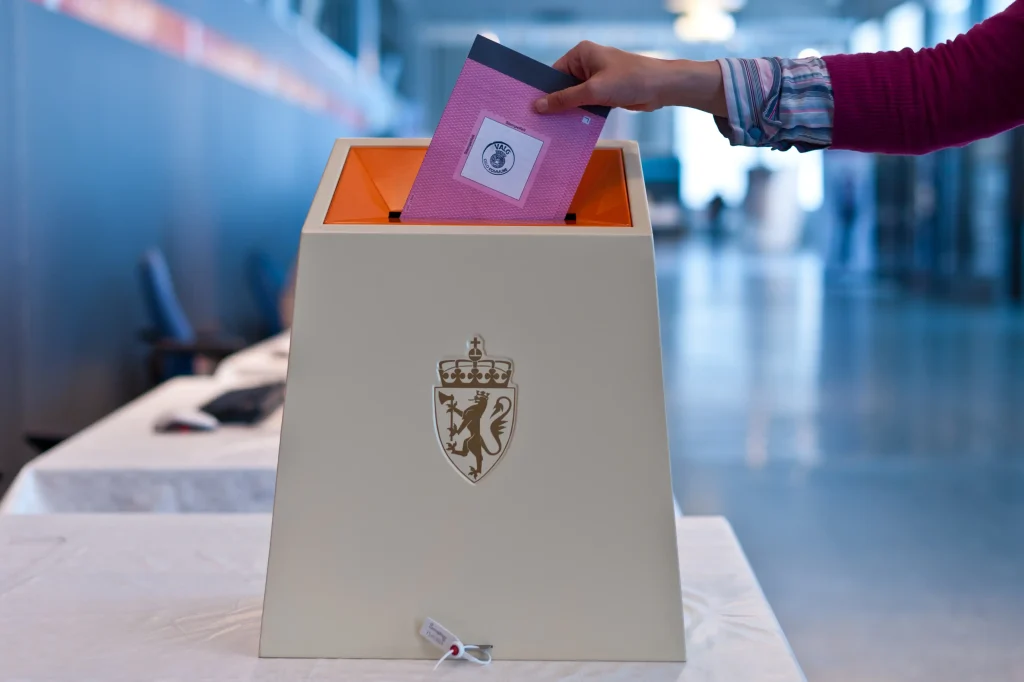On Monday, Norwegians will cast their votes in a highly competitive election, with global issues like US President Donald Trump’s tariff threats and the war in Ukraine potentially boosting support for the current government.
Stability Amid Global Tensions
Jonas Gahr Store, the Labour Party’s seasoned prime minister, holds a slight edge in recent polls. Experts suggest that international uncertainties may lead voters to favor the familiarity of the incumbent government.
Norway, a NATO member bordering Russia in the Arctic, is particularly sensitive to geopolitical shifts, and its economy, heavily reliant on exports, faces risks from global trade disruptions.
“World events, like trade uncertainties and the ongoing conflict in Ukraine, often push voters toward the security of an established government,” political analyst Johannes Bergh said.
Store’s long-standing experience, including his tenure as foreign minister starting two decades ago, strengthens his position in these uncertain times.
Key Domestic Issues in Focus
The campaign has spotlighted domestic challenges, with escalating living costs at the forefront of voter concerns. Norwegians are seeking solutions to ease the financial strain felt across the country.
Improving healthcare access and increasing education funding are also major election themes. Parties have proposed various strategies to address these critical areas, resonating with voters’ priorities.
The wealth tax continues to spark heated discussions. Some parties push for its elimination to spur economic growth, while others defend it as a tool to reduce inequality, highlighting a deep political divide.
Preliminary election results are expected after polls close at 19:00 GMT.
Public Sentiment in Oslo
Voters in the capital express diverse views. “There’s so much that could be improved,” said a 28-year-old nurse Lena Bergstrom.
“But with the world in such turmoil, I think we need a steady government.” Conversely, 41-year-old teacher Magnus Olsen called for change, stating, “It’s time for fresh perspectives and new leadership.”
Fractured Political Alliances
Store’s minority Labour government received a lift with the return of former NATO chief Jens Stoltenberg to a key role.
However, forming a coalition will require cooperation with four left-leaning parties, which are at odds over several issues:
- Oil Production: Labour backs continued oil exploration, a position the Greens firmly oppose.
- EU Ties: Labour and the Greens support stronger EU relations, potentially including membership, but the Centre Party and far-left groups, along with many Norwegians, resist this.
- Wealth Fund Investments: The far-left advocates for divestment from specific international assets, a move Labour opposes.
Divisions on the Right
The opposition, led by Erna Solberg’s Conservatives, is losing ground to the anti-immigration Progress Party, led by the controversial Sylvi Listhaug.
While Listhaug’s popularity is rising, her polarizing approach may deter moderate voters. The right-wing bloc, including smaller center-right parties like the Liberals, is also divided on topics like climate policies, EU relations, and immigration.
A Defining Election for Norway
With political factions on both sides facing internal rifts and a mix of domestic and international pressures, the election’s outcome remains uncertain.
The results will shape Norway’s approach to economic challenges, foreign policy, and its role on the global stage.






